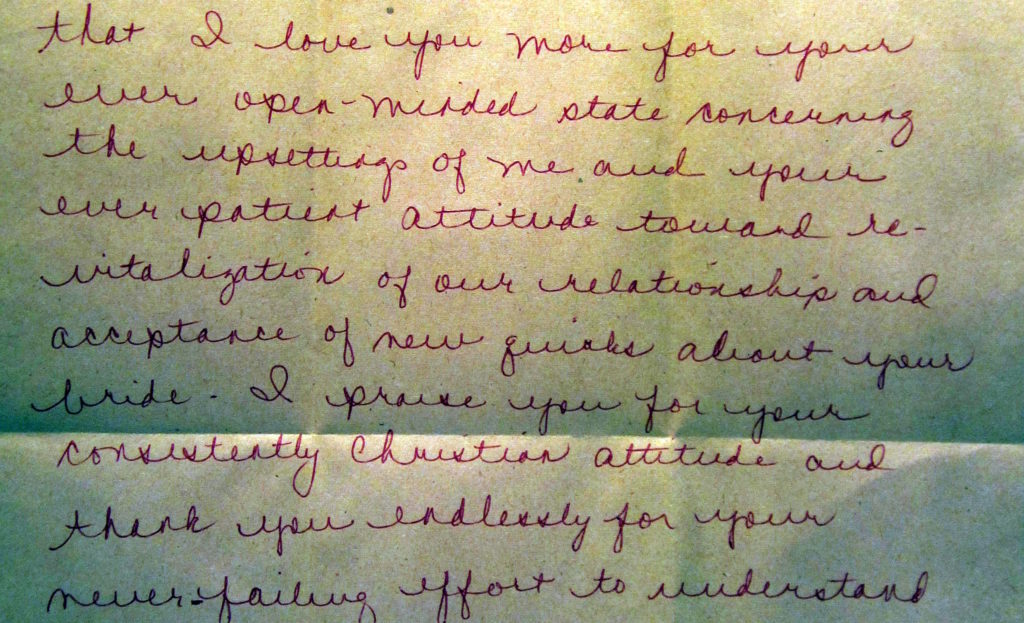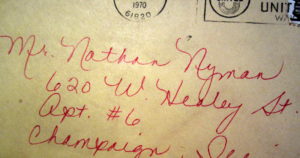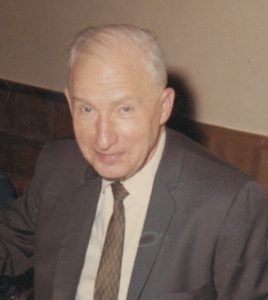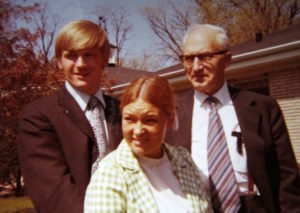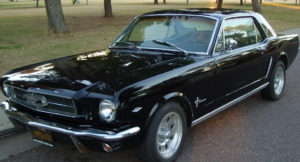February 17, 1970
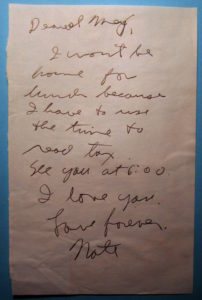 Nate and I did a good job keeping track of each other. If either of us was planning to divert from our usual routine, we told the other ahead of time. If plans changed without advance notice, we’d leave notes.
Nate and I did a good job keeping track of each other. If either of us was planning to divert from our usual routine, we told the other ahead of time. If plans changed without advance notice, we’d leave notes.
Some of our friends thought that was “too confining,” though Nate and I saw it as simple courtesy. But this was just one of many points of disagreement we began having with some of the new friends we were making through the university.
As we got to know people, we would often share a meal during which a handful of us would round-table different ideas, sharing opinions. Inevitably, some of our discussions would become heated and uncomfortable.
Nate and I would talk privately afterwards, always stunned to see how radically different we and others thought. After all, the whole group had much in common. All of us were in our twenties. Many were in grad school, and quite a few were paired in couples – some married, some not.
And we were all sharing our young adulthood years during a time of sweeping societal upheaval. But opinions were swinging every which way. Morals were changing rapidly, and feminists were preaching a philosophy that confused both men and women.
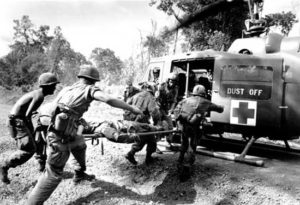 College students were rioting on campuses. People who’d been raised in churches were leaving them…. and leaving God. And for the very first time, we were watching a horrific war take place on our television sets.
College students were rioting on campuses. People who’d been raised in churches were leaving them…. and leaving God. And for the very first time, we were watching a horrific war take place on our television sets.
Nate and I concluded that the diverse opinions we were hearing from our peers were the fallout from these many changes. As America began throwing away the traditions of her history, we and our friends were interpreting things in different ways.
There was, for example, talk of “open marriage.” The premise was that if a husband or wife met someone that caught their fancy, they were free to explore that relationship (even sexually) while remaining married. It would be just a dalliance, nothing permanent, and if both marriage partners understood this, no one would be hurt.
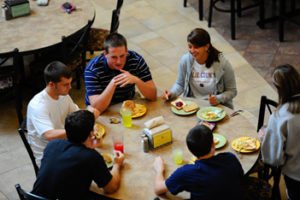 Nate and I were bewildered when others nodded in agreement, since we didn’t see how this could possibly work. When we asked what would happen if just one partner enjoyed frequent dalliances and the other felt left out or jealous, the consensus was that that person would be free to leave the marriage.
Nate and I were bewildered when others nodded in agreement, since we didn’t see how this could possibly work. When we asked what would happen if just one partner enjoyed frequent dalliances and the other felt left out or jealous, the consensus was that that person would be free to leave the marriage.
How could intelligent people, we wondered, think such crazy thoughts? As time went by, these debates left Nate and I feeling more empty and unsatisfied.
It finally occurred to us that the discussions we had in our couples Sunday school class were more rewarding than those with university pals. We concluded it was because Jesus and his Word were at the center, standing strong with a set of standards that didn’t blow with the wind or change with the culture.
From then on, Nate and I began choosing our friends more carefully. We were learning an important lesson: we could associate with all kinds of people, but our most fulfilling relationships would always be with other Christians.
 We learned that core beliefs control the way people think and act. When hearts and minds align on those, deep connections can be made that can’t be made when they refuse to line up. It was a meaningful discovery for us, and we were thankful anew for each other – and our shared beliefs.
We learned that core beliefs control the way people think and act. When hearts and minds align on those, deep connections can be made that can’t be made when they refuse to line up. It was a meaningful discovery for us, and we were thankful anew for each other – and our shared beliefs.
“There is one Lord, one faith, one baptism, one God and Father of all, who is over all, in all, and living through all.” (Ephesians 4:5-6)

